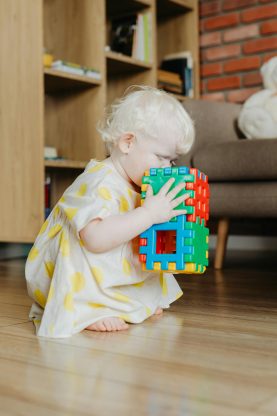Table of Contents
Physical Development
Physical development refers to the growth of a child’s body and motor skills. From infancy to adolescence, children go through significant changes in their physical abilities. As a babysitter, it’s important to create a safe and nurturing environment that encourages physical activity and movement. Encouraging children to engage in physical play, such as running, jumping, and climbing, helps them develop their gross motor skills. Fine motor skills, such as writing and drawing, can be fostered through activities like coloring or playing with puzzles. Providing healthy meals and snacks, as well as promoting good hygiene habits, also supports a child’s physical development.
On-Demand Childcare in Your Neighborhood
Book a Sitter
Cognitive Development
Cognitive development involves a child’s ability to think, learn, and problem-solve. From the early years of exploring through play to the later years of critical thinking and abstract reasoning, children’s cognitive abilities progress at a rapid pace. As a babysitter, you can support cognitive development by providing age-appropriate toys and activities that encourage learning and exploration. Reading books, playing educational games, and engaging in conversations with children all contribute to their cognitive growth. Encouraging children to ask questions, make observations, and solve problems on their own helps build their critical thinking skills.
Emotional Development
Emotional development focuses on a child’s ability to understand and manage their feelings. From expressing basic emotions like joy and sadness to developing empathy and resilience, children’s emotional development is a complex and important aspect of their growth. As a babysitter, you can support emotional development by creating a safe and supportive environment where children feel comfortable expressing their emotions. Encouraging open communication, active listening, and validating children’s feelings helps them build emotional intelligence and develop healthy coping mechanisms. Providing comfort, reassurance, and consistent routines also contribute to a child’s emotional well-being.

Social Development
Social development refers to a child’s ability to interact with others and form relationships. From early interactions with family members to making friends and navigating social hierarchies, children learn valuable social skills that shape their future relationships. As a babysitter, you play a key role in supporting a child’s social development by providing opportunities for playdates, group activities, and social outings. Encouraging children to share, take turns, and practice good manners helps them develop important social skills like empathy, cooperation, and communication.
Modeling positive social behaviors and resolving conflicts peacefully also teaches children valuable lessons about building and maintaining healthy relationships.
Supporting Child Development as a Babysitter
As a babysitter, you have the unique opportunity to positively influence a child’s development in various areas. By understanding the different stages of child development and providing intentional support and guidance, you can help children reach their full potential. Building strong relationships with the children you babysit, communicating effectively with their parents, and continuing to educate yourself on child development principles are all essential in supporting children’s growth and well-being. Remember that every child is unique and may develop at their own pace, so being patient, flexible, and compassionate is key to being an effective and caring babysitter. By prioritizing the holistic development of the children you care for, you can make a lasting impact on their lives and contribute to their overall happiness and success.










